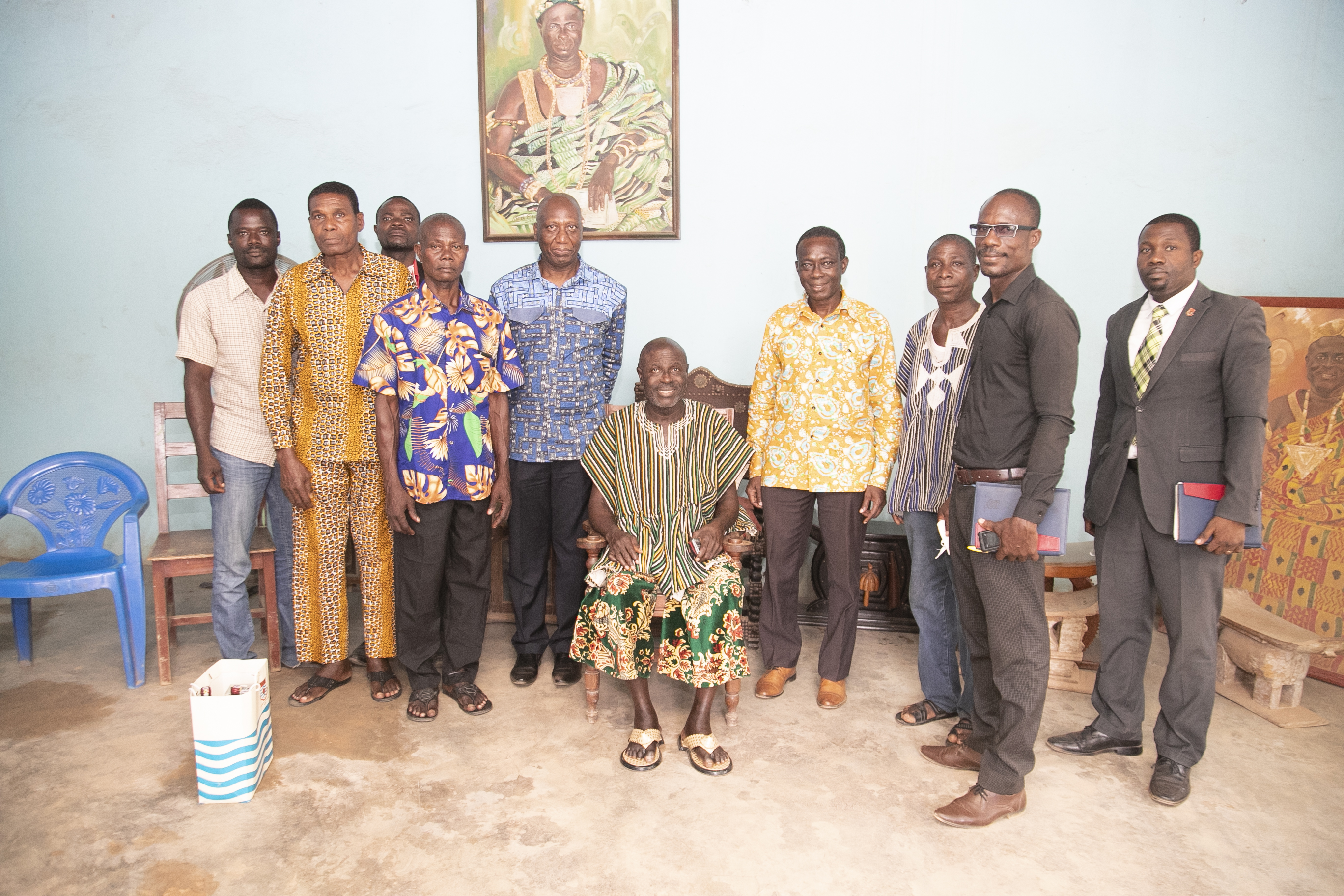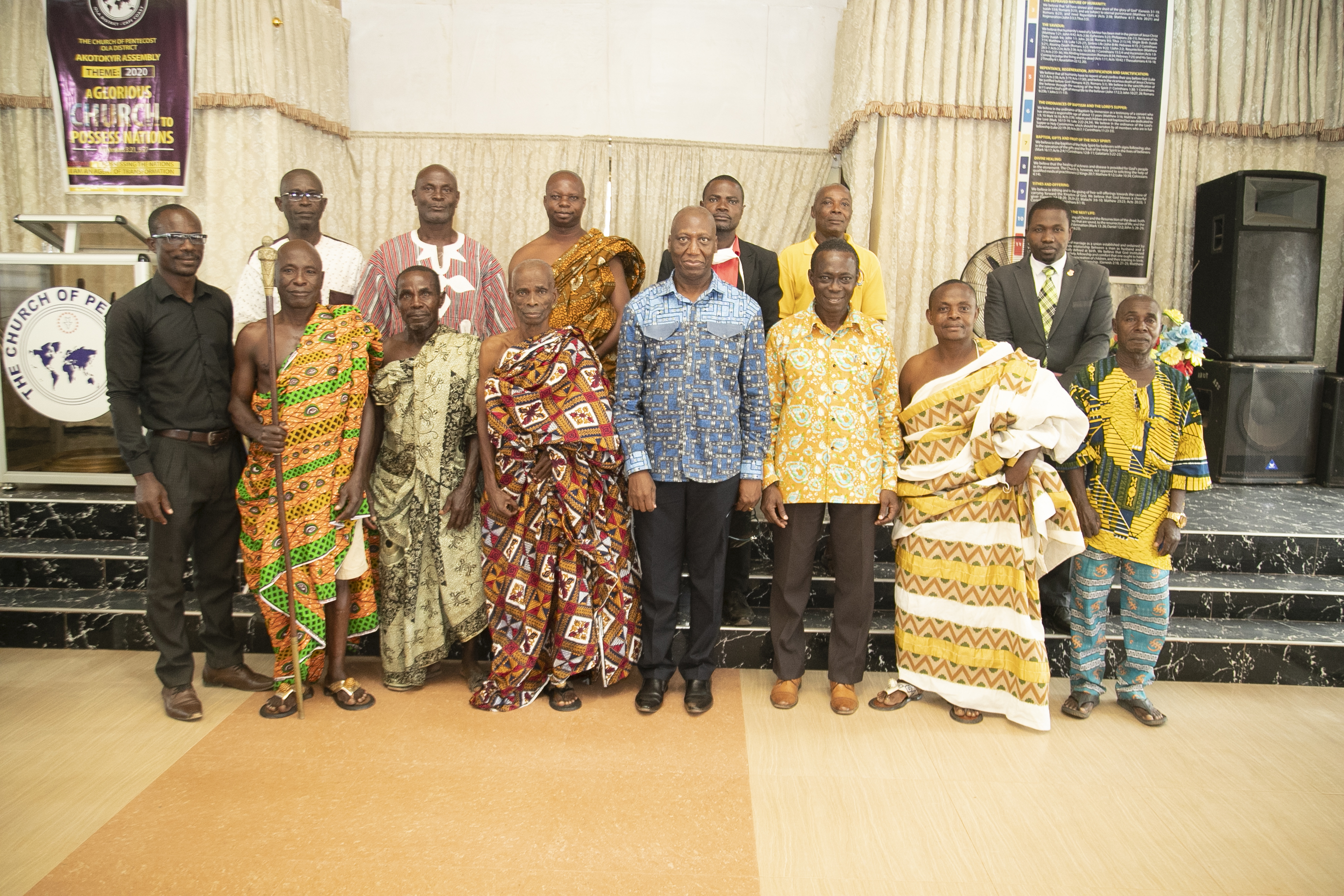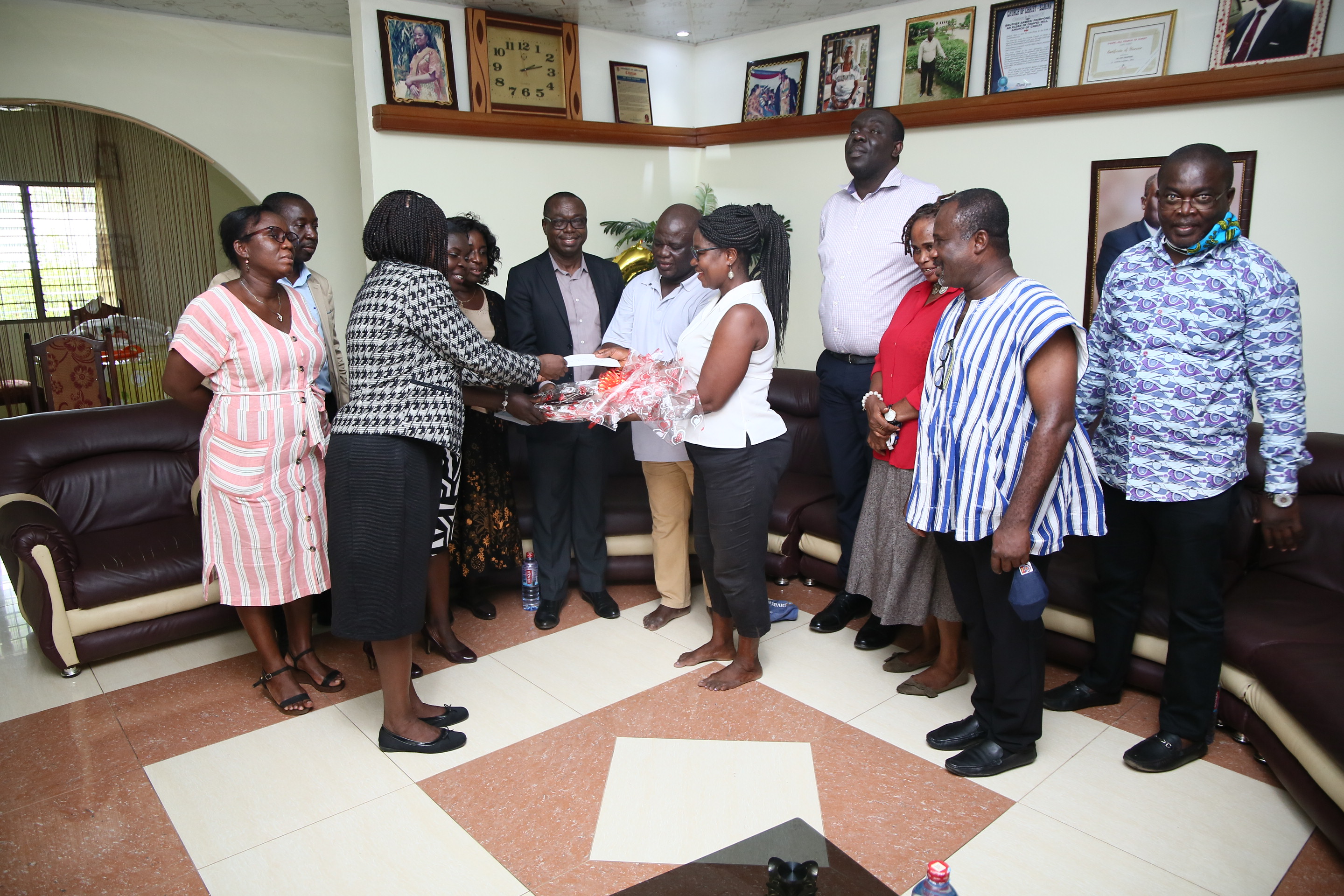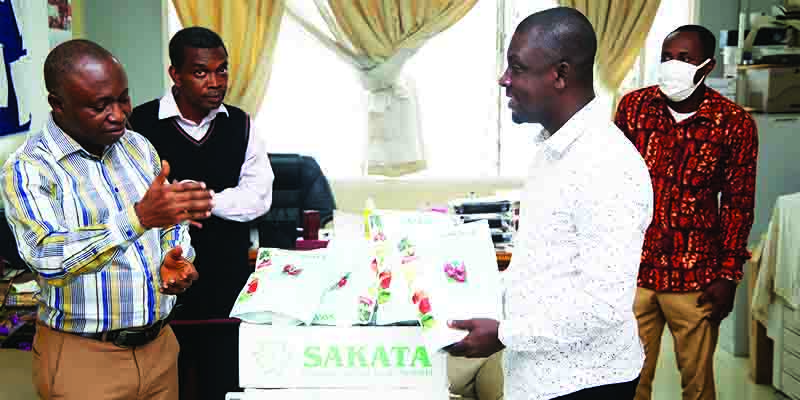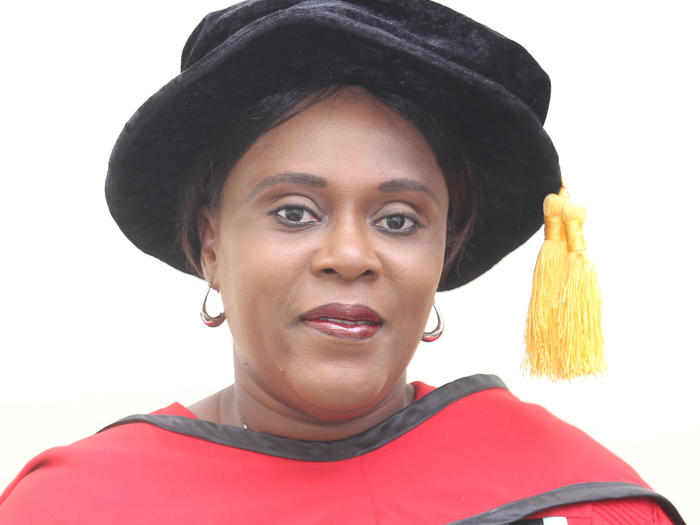Background
The institution of the Best Researcher Awards (BRAs) in the University of Cape Coast (UCC) is considered as one of the programmes to reward its outstanding researchers. The BRAs are awarded to exceptional scientists and scholars for their outstanding achievements in the field of research. The Awards are dispensed annually to deserving staff of the University at the Research Awards and Grants (RAG) Ceremony organised by the Directorate of Research, Innovation and Consultancy (DRIC).
The Call for Applications for Best Researcher Awards for 2020-2021 Academic Year puts on offer Forty-One Thousand Ghana Cedis (GH¢41,000.00).
The research awards are:
❖ Best ‘College-Level’ Researcher
❖ Best ‘Evolving’ Researcher
❖ Best ‘Evolved’ Researcher
❖ ‘Outstanding’ Researcher
❖ ‘Distinguished’ Professor
Criteria for Research Awards
Best Researcher Awards
The Best Researcher Awards (BRAs) shall be offered to University teaching staff who engage in research and have earned excellence for themselves and the University because of the importance and remarkable characteristics of their research work. Candidates for the award should have been confirmed as employees of the University and also, should be less than 60 years of age at the time of submitting application for the award. Evidence of research output of applicants for the award must clearly indicate the applicant’s full-time affiliation with the University. Researchers on leave, either within the University or outside, are not eligible.
Candidates for the BRAs shall be categorised into five groups, namely ‘College-Level’, ‘Evolving’, ‘Evolved’, and ‘Outstanding’ Researchers, and ‘Distinguished’ Professor, which shall lead to five awards. Eligibility to participate in the ‘Evolving’, ‘Evolved’ and ‘Outstanding’ awards are based on a number of years as an academic (both within and outside the University). Applicants for the Best ‘Evolving’ Researcher Award (BERA) should have up to six (6) years of experience as an academic. In the case of Best ‘Evolved’ Researcher Award (BEdRA), eligibility is restricted to staff with more than six (6) years of experience as an academic. Candidates must have at least ten (10) years of experience as an academic to participate in the ‘Outstanding’ Researcher Award (ORA). An applicant is allowed to apply for one out of the three Awards (BERA, BEdRA and ORA).
The following outlines the specific criteria for eligibility into each of the five categories of the BRAs:
1.1. Best College-Level Researcher Award
1.1.1. The award (BCLRA) shall be offered at the College level. Funds will be provided by DRIC to the Colleges for administrative facilitation of the processes at the College level.
1.1.2. The prize shall be awarded to teaching staff in each of the Five Colleges with the most cited publications in the Institute for Scientific Information (ISI) indexed journals.
1.1.3. There shall be one award for each College [A financial award of Three Thousand Ghana Cedis (GH¢3,000.00) per College].
1.1.4. The winner must be a teaching staff of the University and affiliated to one of the five Colleges of the University and must be 60 years of age or below.
1.1.5. Aspirants for the award must have published, at least, six (6) papers in the last three years preceding the 2020-2021 Academic Year.
1.1.6. Three of these publications must have attracted a minimum of fifteen (15) citations each on Google Scholar. However, an applicant’s presence on ResearchGate and non- self-citations as evidenced by articles on Scopus will be considered more favourably.
1.1.7. Staff with the following will have an advantage:
❖ Publications in refereed journals indexed in Thomson Reuters master journal list (either Science citation index or Social Science & Humanities citation index).
1.1.8.College-level public lecture:
❖ Each of the BCLRA winners is expected to deliver a lecture on his/her winning research at a forum at his/her college. DRIC will coordinate this arrangement.
1.2. Best Evolving Researcher Award
The following criteria shall be followed to identify the BERA:
1.2.1. Aspirants for BERA should have been employed in the University for a maximum of six (6) years.
1.2.2. The candidate should submit evidence of, at least, twelve (12) publications.
Candidates who have published in refereed scientific journals indexed in Thomson Reuters master journal list (either Science citation index or Social Science & Humanities citation index) or Scopus or Web of Science will be considered more favourably.
1.2.3. Eligible applicants should show evidence of contributing to the visibility of the University through received citations of published articles and research grants from donors and funders. Candidates with, at least, One Hundred (100) Google Scholar citations (non-self) shall be considered favourably. In addition, an applicant’s presence on ResearchGate, Publons and Scopus will be considered more favourably.
1.2.4. Aspirants should demonstrate engagement with policymaking and decision-makers. Among the evidence to be considered are; evidence of policy/news briefs, roundtable discussion with policymakers and interactions/engagements with the media (either electronic or print) on policy matters.
1.2.5. The beneficiary of BERA shall receive a plaque and financial award of Four Thousand Ghana Cedis (GH¢4,000.00).
1.2.6. The winner of the BERA shall make a presentation on his/her scholarly research portfolio/endeavours at the RAG Ceremony.
1.3. Best Evolved Researcher Award
The following criteria shall be employed to identify the BEdRA:
1.3.1.Aspirants for BEdRA should have been employed in the University for, at least, six
(6) years and must be below 60 years.
1.3.2.The candidate should submit evidence of, at least, twenty (20) publications.
Candidates who have published in refereed scientific journals indexed in Thomson Reuters master journal list (either Science citation index or Social Science & Humanities citation index) or Scopus or Web of Science will be considered more favourably.
1.3.3. All the publications should have a cite score of 1.0.
1.3.4.The research output should be a mix of both single authored and multiple authored papers.
1.3.5.Eligible applicants should show evidence of contributing to the image of the University through received citations of their published articles. Candidates with, at least, Two Hundred and Fifty (250) Google Scholar citations (non-self) shall be considered favourably. However, an applicant with ResearchGate and Scopus citations will be considered more favourably.
1.3.6.Aspirants should demonstrate engagement with policy. Among the evidence to be considered are; evidence of policy/news briefs, roundtable discussion with policymakers and interactions/engagements with the media (either electronic or print) on policy matters.
1.3.7. Contenders for BEdRA should show evidence of either singularly or in collaboration with other researchers written research proposals or received research grants or contracts in the last five academic years preceding the 2020-2021 Academic Year.
1.3.8. The beneficiary of BEdRA shall receive a plaque and financial award of Six Thousand Ghana Cedis (GH¢6,000.00).
1.3.9. The winner of the BEdRA must be willing to make a presentation on his/her scholarly research portfolio/endeavours at the RAG Ceremony.
1.4. Outstanding Researcher Award
1.4.1. Aspirants for ORA should have been employed in the University for at least ten (10) years.
1.4.2. The candidate should submit evidence of a minimum of twenty-five (25) publications in the last ten years. Candidates who have published in refereed scientific journals indexed in Thomson Reuters master journal list (either Science citation index or Social Science & Humanities citation index) or Scopus or Web of Science will be considered more favourably.
1.4.3. All the publications should have a cite score of 2.0.
1.4.4. The research output should be a mix of both single-authored and multiple-authored papers.
1.4.5. Eligible applicants should show evidence of contributing to the image of the University through received citations of their published articles. Candidates with, at least, Four Hundred (400) Google Scholar citations (non-self) shall be considered favourably. However, an applicant with ResearchGate and Scopus citations will be considered more favourably.
1.4.6. Applicants should have successfully supervised at least three (3) PhD candidates either as Principal Supervisor or Co-Supervisor in the last ten (10) years preceding the 2020-2021 Academic Year.
1.4.7. Aspirants should demonstrate engagement with policy. Among the evidence to be considered are; evidence of policy/news briefs, roundtable discussion with policymakers and interactions/engagements with the media (either electronic or print) on policy matters.
1.4.8. Contenders for ORA should show evidence of either singularly or in collaboration with other researchers written research proposals or received research grants or contracts with a money value of at least Three Hundred Thousand Ghana Cedis (GH¢300,000.00) in the last three academic years preceding 2020-2021 Academic Year.
1.4.9. The beneficiary of ORA shall receive a plaque and financial award of Seven Thousand Ghana Cedis (GH¢7,000.00).
1.4.10. The winner of the ORA must be willing to make a presentation on his/her scholarly research portfolio/endeavours at the RAG Ceremony.
1.5. Distinguished Professor Award
1.5.1. One applicant will be awarded for this category. Applicants for DPA should be full- time active faculty members of UCC at the rank of Associate Professor or Professor with Considerable International Recognition (CIR). The notion of CIR requires contextualisation within the broad area of research undertaken at UCC. In other words, there is not a priori set definition, but research and scholarly work must be placed in the context of the diverse academic research practices that characterise humanities, social science and natural science research in Ghana and internationally.
1.5.2. In the context of UCC, indicators of CIR that DRIC will use to evaluate applicants include but not limited to:
❖ Creative work which has been the topic of scholarly books, articles or chapters in books outside Ghana;
❖ Performances or exhibitions at prestigious venues outside Ghana and which have been reviewed in a scholarly manner;
❖ Commissions for art, compositions, plays, designs from outside Ghana;
❖ Citations and h-indexes, i.e., a reflection of the influence on the research of others, but with due acknowledgement that these vary greatly depending on disciplines and even sub-disciplines and the databases used for their calculation. These can never be used as a hard and fast rule as a measure of CIR, but can provide valuable guidance;
❖ Impact Factors of journals, where known, otherwise in internationally recognised quality journals with a wide readership;
❖ Books/monographs published by well-known international publishing houses and used by international researchers as scholarly texts;
❖ Invitations to contribute chapters to books published by well-known international publishing houses;
❖ Invitations to write major reviews on the topic of specialisation;
❖ Invitations as keynote/plenary speakers at high profile international conferences;
❖ Invitations to act as external examiner of PhD theses by prominent scholars in the field;
❖ Co-supervisors of PhD students with prominent scholars in the field;
❖ Awards by international scientific societies/organisations;
❖ Leader of or leading role in international collaborative research projects;
❖ Invitations to serve on or become a member of Editorial Boards of Journals;
❖ Number of manuscripts reviewed for international journals based on Publons record
❖ Serving on committees of international societies, advisory boards, conference organising committees, international research programmes, etc.;
❖ Convenor/organiser of international conferences; and
❖ Winning of research grants of at least Two Hundred and Fifty Thousand United States Dollars (250,000 USD) in the last five years.
1.5.3. The beneficiary of DPA shall receive a plaque and financial award of Nine Thousand Ghana Cedis (GH¢9,000.00).
Composition of Assessment Team and Criteria for Assessment
❖ Evaluation of BERA, BEdRA, ORA and DPA shall be done at the university-wide level. The Award Assessment Team members are not allowed to compete for the Awards. DRIC will constitute the Team in consultation with the Chairperson for the DRIC Management Committee. A representative each from DRIC, Colleges concerned and the UCC Committee for Staff Recognition will be part of the Assessment Team.
❖ For the BCLRA, applications shall be evaluated at the College level. The
Assessment Team shall be composed of the Provost and Deans and a representative each from DRIC and the UCC Committee for Staff Recognition. In the case of CoDE (where there are no Deans), two senior professors shall be co-opted into the College Assessment Team. The implication is that Provosts and Deans are not eligible for these college awards.
❖ All applications will be validated against the eligibility criteria set out by DRIC.
❖ The assessment of applications shall be guided by the criteria and procedures set out herein.
Accessing Application Forms and Deadline for Submission
The application form for the awards can be accessed here or from DRIC’s Office electronically, either by email sent to all colleagues or downloaded from the University’s website. Application forms (soft copies) should be submitted to DRIC via email - dric@ucc.edu.gh.
All submissions (Application Form and Supporting Documents) should reach DRIC by
Friday, 25th September, 2020
Further Enquiries:
dric@ucc.edu.gh





